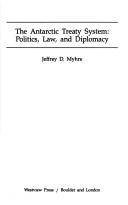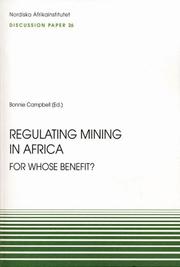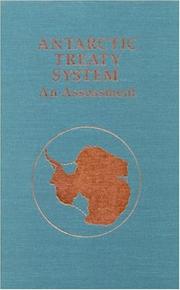| Listing 1 - 10 of 22 | << page >> |
Sort by
|
Book
ISBN: 0128238860 0128242035 9780128242032 9780128238868 Year: 2021 Publisher: Amsterdam, Netherlands ; Oxford, England ; Cambridge, Massachusetts : Elsevier,
Abstract | Keywords | Export | Availability | Bookmark
 Loading...
Loading...Choose an application
- Reference Manager
- EndNote
- RefWorks (Direct export to RefWorks)
Mining law. --- Law, Mining --- Mines and mineral resources --- Subsoil rights --- Concessions --- Labor laws and legislation --- Power resources --- Law and legislation
Book
ISBN: 303107047X 3031070488 Year: 2022 Publisher: Cham, Switzerland : Palgrave Macmillan,
Abstract | Keywords | Export | Availability | Bookmark
 Loading...
Loading...Choose an application
- Reference Manager
- EndNote
- RefWorks (Direct export to RefWorks)
Mining law. --- Law, Mining --- Mines and mineral resources --- Subsoil rights --- Concessions --- Labor laws and legislation --- Power resources --- Law and legislation

ISBN: 0813372860 9780813372860 Year: 1986 Publisher: Boulder Westview
Abstract | Keywords | Export | Availability | Bookmark
 Loading...
Loading...Choose an application
- Reference Manager
- EndNote
- RefWorks (Direct export to RefWorks)
Mining law --- Antarctic Treaty system --- Antarctica --- International status --- 341.228 --- -Law, Mining --- Mines and mineral resources --- Subsoil rights --- Concessions --- Labor laws and legislation --- Power resources --- Poolgebieden --- Law and legislation --- -Antarctic regions --- Polar regions --- -Poolgebieden --- -International status --- 341.228 Poolgebieden --- -341.228 Poolgebieden --- Law, Mining --- International status. --- Mining law - Antarctica --- Antarctica - International status
Book
ISBN: 0521323835 0521100070 0511565631 Year: 1988 Publisher: Cambridge : Cambridge University Press,
Abstract | Keywords | Export | Availability | Bookmark
 Loading...
Loading...Choose an application
- Reference Manager
- EndNote
- RefWorks (Direct export to RefWorks)
The system of international co-operation in the Antarctic has been evolving rapidly since the signing of the Antarctic Treaty in 1959. Inextricably linked to this co-operation is the question of the rational management of Antarctic resources. In this book Professor Orrego Vicuna examines in depth the legal framework - the Antarctic Treaty, sovereignty, jurisdiction and the law of the sea - as it relates to the exploitation of Antarctic minerals. This is fast becoming a live issue with the ever-growing potential for the development of these resources. The first part of the book examines the main characteristics of the international legal framework governing the co-operation of states in Antarctica, particularly in relation to resource conservation. Against this background, in the second part of the book, the regime for mineral resources is discussed in sufficient detail to identify the basic issues and interests which have to be accommodated in order to attain an acceptable convention. The final part of the book considers the important set of questions raised by the interest of the world community at large in the Antarctic: most significantly, the initiatives concerning a broader international participation under the auspices of the United Nations.
Mining law --- Life Sciences --- General and Others --- Antarctica --- International status. --- Law, Mining --- Mines and mineral resources --- Subsoil rights --- Concessions --- Labor laws and legislation --- Power resources --- Law and legislation --- Antarctique --- Droit des gens --- Régions polaires

ISSN: 11048417 ISBN: 917106527X Year: 2004 Publisher: Uppsala Nordiska Afrikainstitutet
Abstract | Keywords | Export | Availability | Bookmark
 Loading...
Loading...Choose an application
- Reference Manager
- EndNote
- RefWorks (Direct export to RefWorks)
Third World: economic development problems --- Africa --- Mining law --- Law, Mining --- Mines and mineral resources --- Subsoil rights --- Law and legislation --- Developing countries: economic development problems --- Concessions --- Labor laws and legislation --- Power resources

ISBN: 0309036402 9786610222131 1280222131 0309554810 058526158X 9780585261584 0309127203 9780309127202 9780309036405 9781280222139 6610222134 9780309554817 Year: 1986 Publisher: Washington, D.C. National Academy Press
Abstract | Keywords | Export | Availability | Bookmark
 Loading...
Loading...Choose an application
- Reference Manager
- EndNote
- RefWorks (Direct export to RefWorks)
Antarctic Treaty system --- Mining law --- Congresses. --- Antarctica --- International status --- Congresses --- Law, Mining --- Mines and mineral resources --- Subsoil rights --- Law and legislation --- Antarctic regions --- Concessions --- Labor laws and legislation --- Power resources --- Polar regions
Book
ISBN: 1108904203 110884278X 1108916333 1108912559 Year: 2022 Publisher: Cambridge : Cambridge University Press,
Abstract | Keywords | Export | Availability | Bookmark
 Loading...
Loading...Choose an application
- Reference Manager
- EndNote
- RefWorks (Direct export to RefWorks)
People have been digging in the ground for useful minerals for thousands of years. Mineral materials are the foundation of modern industrial society. As the global population grows and standards of living in emerging and developing countries rises, the demand for mineral products is increasing. Mining ensures that we have an adequate supply of the raw materials to produce all the components of modern life, and at competitive prices. Innovation is central to meeting the diverse challenges faced by the mining industry. It is critical for developing techniques for finding new deposits of minerals, enabling us to recover increasing amounts of minerals from the ground in a cost-effective manner, and ensuring it this is done in a way that is as environmentally responsible. This book provides the first in-depth global analysis of the innovation ecosystem in the mining sector. This book is Open Access.
Mining law. --- Mining engineering --- Intellectual property --- Technological innovations. --- Economic aspects. --- Engineering, Mining --- Mines and mining --- Mining --- Engineering --- Law, Mining --- Mines and mineral resources --- Subsoil rights --- Concessions --- Labor laws and legislation --- Power resources --- Law and legislation --- intellectual property --- international business
Book
ISBN: 9783631560778 363156077X Year: 2007 Volume: 1 Publisher: Frankfurt am Main Lang
Abstract | Keywords | Export | Availability | Bookmark
 Loading...
Loading...Choose an application
- Reference Manager
- EndNote
- RefWorks (Direct export to RefWorks)
Energy industries --- Mining law --- Law and legislation --- Law, Mining --- Mines and mineral resources --- Subsoil rights --- Concessions --- Labor laws and legislation --- Power resources --- Industries --- Energy industries - Law and legislation - Europe - Congresses --- Energy industries - Law and legislation - Russia (Federation) - Congresses --- Mining law - Germany - Congresses --- Mining law - Russia (Federation) - Congresses
Book
ISBN: 0198820933 0192552880 0191860476 0192552899 Year: 2018 Publisher: Oxford : Oxford University Press,
Abstract | Keywords | Export | Availability | Bookmark
 Loading...
Loading...Choose an application
- Reference Manager
- EndNote
- RefWorks (Direct export to RefWorks)
Proposals for more effective natural resource governance emphasise the importance of institutions and governance, but say less about the political conditions under which institutional change occurs. 'Governing Extractive Industries' synthesises findings regarding the political drivers of institutional change in extractive industry governance. It analyses resource governance from the late 19th century to the present in Bolivia, Ghana, Peru and Zambia, focusing on the ways in which resource governance and national political settlements interact.
Mining law. --- Law, Mining --- Mines and mineral resources --- Subsoil rights --- Concessions --- Labor laws and legislation --- Power resources --- Law and legislation --- Petroleum law and legislation. --- Mineral oils --- Oil and gas law --- Petroleum --- Petroleum industry and trade --- Mining law --- Natural resources --- mining --- extractive industry --- natural resource governance --- political settlements --- Bolivia --- Ghana --- Peru --- Zambia --- inclusive development --- Hydrocarbon
Book
ISBN: 9780745329390 9780745329406 9781552504505 1552504506 9781849644358 1849644357 9789171066473 9171066470 074532939X 0745329403 074532939X 1282272683 9781282272682 1783718501 9786612272684 Year: 2009 Publisher: London : Ottawa : Uppsala : Pluto Press ; International Development Research Centre ; Nordic Africa Institute,
Abstract | Keywords | Export | Availability | Bookmark
 Loading...
Loading...Choose an application
- Reference Manager
- EndNote
- RefWorks (Direct export to RefWorks)
The continent of Africa is rich in minerals needed by Western economies. Yet the mining industry contributes very little to African development. Investigating the impact of the 2003 Extractive Industries Review on a number of African countries, the contributors find that a key dimension of the problem lies in the regulatory frameworks imposed on African countries by the International Monetary Fund and the World Bank. They aim to convince academics, governments, and industry that regulation needs to be reformed to create a mining industry favourable to social and economic development and enviro
Industrial economics --- Mining industry --- Africa --- Technique minière --- Économie du développement --- Mining law --- Mines and mineral resources --- Mineral industries --- Extractive industries --- Extractive industry --- Metal industries --- Mines and mining --- Mining --- Mining industry and finance --- Industries --- Law, Mining --- Subsoil rights --- Concessions --- Labor laws and legislation --- Power resources --- Law and legislation
| Listing 1 - 10 of 22 | << page >> |
Sort by
|

 Search
Search Feedback
Feedback About UniCat
About UniCat  Help
Help News
News